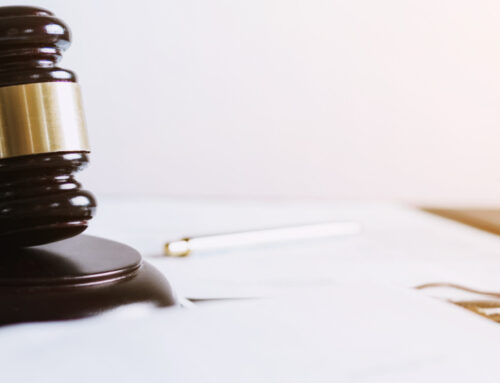In Maryland, stalking is defined as a course of conduct that causes the victim to fear for their safety or the safety of a family member. Specifically, the law defines stalking as when a person engages in a pattern of conduct, which includes two or more acts, directed at a specific person, that would cause a reasonable person to fear for their safety or the safety of a family member.
Examples of stalking behaviors that may be considered in Maryland include, but are not limited to:
- Following the victim or appearing at their workplace, school, or home without permission
- Making repeated unwanted phone calls, emails, or messages to the victim
- Using electronic, digital, or online communication to harass, intimidate, or threaten the victim
- Leaving unwanted gifts, notes, or objects for the victim
- Engaging in behavior that the victim has made clear is unwanted or harassing
Stalking is a serious offense in Maryland and can result in criminal charges. The penalties for stalking can vary depending on the severity of the offense and the circumstances of the case. In Maryland, stalking can be charged as a misdemeanor or a felony, depending on the number of prior offenses and the nature of the conduct. Penalties can include fines, imprisonment, and a protective order that prohibits the stalker from having any contact with the victim.
If you have been charged with stalking in Maryland, it is important to take the charge seriously and take action to protect your rights and defend yourself against the allegations. Here are some steps you can take if you have been charged with stalking in Maryland:
- Contact an attorney: One of the first steps you should take if you have been charged with stalking is to contact an experienced criminal defense attorney. An attorney can help you understand the charges against you, explain your legal rights, and develop a strategy for defending against the charges.
- Comply with any court orders: If you have been charged with stalking, the court may issue a protective order that prohibits you from contacting the alleged victim. It is important to comply with any court orders and avoid any contact with the victim, even if you believe that you have done nothing wrong.
- Gather evidence: Your attorney can help you gather evidence that may be used to defend against the charges, such as witness statements, communications, and other documentation. It is important to provide your attorney with as much information as possible about the alleged stalking incidents, including any relevant facts or evidence that may be helpful to your defense.
- Attend all court hearings: It is important to attend all court hearings related to your stalking charge, including arraignment, pretrial conferences, and trial. Failing to appear in court can result in additional legal problems and may impact the outcome of your case.
- Avoid discussing the case with others: It is important to avoid discussing the stalking case with anyone other than your attorney. Any statements you make could potentially be used against you in court, so it is best to avoid discussing the case with friends, family members, or anyone else.
Being charged with stalking can be a serious matter, but there are steps you can take to defend yourself against the allegations. By working with an experienced criminal defense attorney and following these guidelines, you can help protect your rights and achieve the best possible outcome for your case.
Cargos de Acecho en Maryland
En Maryland, el acecho se define como un curso de conducta que hace que la víctima tema por su seguridad o la seguridad de un miembro de la familia. Específicamente, la ley define el acecho como cuando una persona se involucra en un patrón de conducta, que incluye dos o más actos, dirigidos a una persona específica, que harían que una persona razonable temiera por su seguridad o la seguridad de un miembro de la familia.
Los ejemplos de conductas de acecho que pueden considerarse en Maryland incluyen, entre otros:
- Seguir a la víctima o aparecer en su lugar de trabajo, escuela u hogar sin permiso
- Hacer repetidas llamadas telefónicas, correos electrónicos o mensajes no deseados a la víctima
- Usar comunicación electrónica, digital o en línea para acosar, intimidar o amenazar a la víctima
- Dejar regalos, notas u objetos no deseados para la víctima
- Participar en un comportamiento que la víctima ha dejado claro que no es deseado o que es acosador
El acecho es un delito grave en Maryland y puede dar lugar a cargos penales. Las sanciones por acecho pueden variar según la gravedad del delito y las circunstancias del caso. En Maryland, el acecho se puede acusar como un delito menor o un delito grave, según la cantidad de delitos anteriores y la naturaleza de la conducta. Las sanciones pueden incluir multas, encarcelamiento y una orden de protección que prohíba al acosador tener contacto con la víctima.
Si ha sido acusado de acecho en Maryland, es importante que se tome el cargo en serio y tome medidas para proteger sus derechos y defenderse de las acusaciones. Estos son algunos pasos que puede seguir si ha sido acusado de acecho en Maryland:
- Comuníquese con un abogado: Uno de los primeros pasos que debe tomar si ha sido acusado de acecho es comunicarse con un abogado defensor penal con experiencia. Un abogado puede ayudarlo a comprender los cargos en su contra, explicarle sus derechos legales y desarrollar una estrategia para defenderse de los cargos.
- Cumpla con las órdenes judiciales: Si ha sido acusado de acecho, la corte puede emitir una orden de protección que le prohíba contactar a la presunta víctima. Es importante cumplir con las órdenes judiciales y evitar cualquier contacto con la víctima, incluso si cree que no ha hecho nada malo.
- Reúna evidencia: su abogado puede ayudarlo a recopilar evidencia que pueda usarse para defenderse de los cargos, como declaraciones de testigos, comunicaciones y otra documentación. Es importante brindarle a su abogado la mayor cantidad de información posible sobre los presuntos incidentes de acecho, incluidos los hechos o las pruebas pertinentes que puedan ser útiles para su defensa.
- Asista a todas las audiencias judiciales: Es importante asistir a todas las audiencias judiciales relacionadas con su cargo de acecho, incluida la lectura de cargos, las conferencias previas al juicio y el juicio. No comparecer ante el tribunal puede resultar en problemas legales adicionales y puede afectar el resultado de su caso.
- Evite hablar del caso con otras personas: Es importante evitar hablar del caso de acecho con nadie que no sea su abogado. Cualquier declaración que haga podría potencialmente usarse en su contra en la corte, por lo que es mejor evitar discutir el caso con amigos, familiares o cualquier otra persona.
Ser acusado de acecho puede ser un asunto serio, pero hay pasos que puede tomar para defenderse de las acusaciones. Al trabajar con un abogado de defensa criminal con experiencia y seguir estas pautas, puede ayudar a proteger sus derechos y lograr el mejor resultado posible para su caso.





